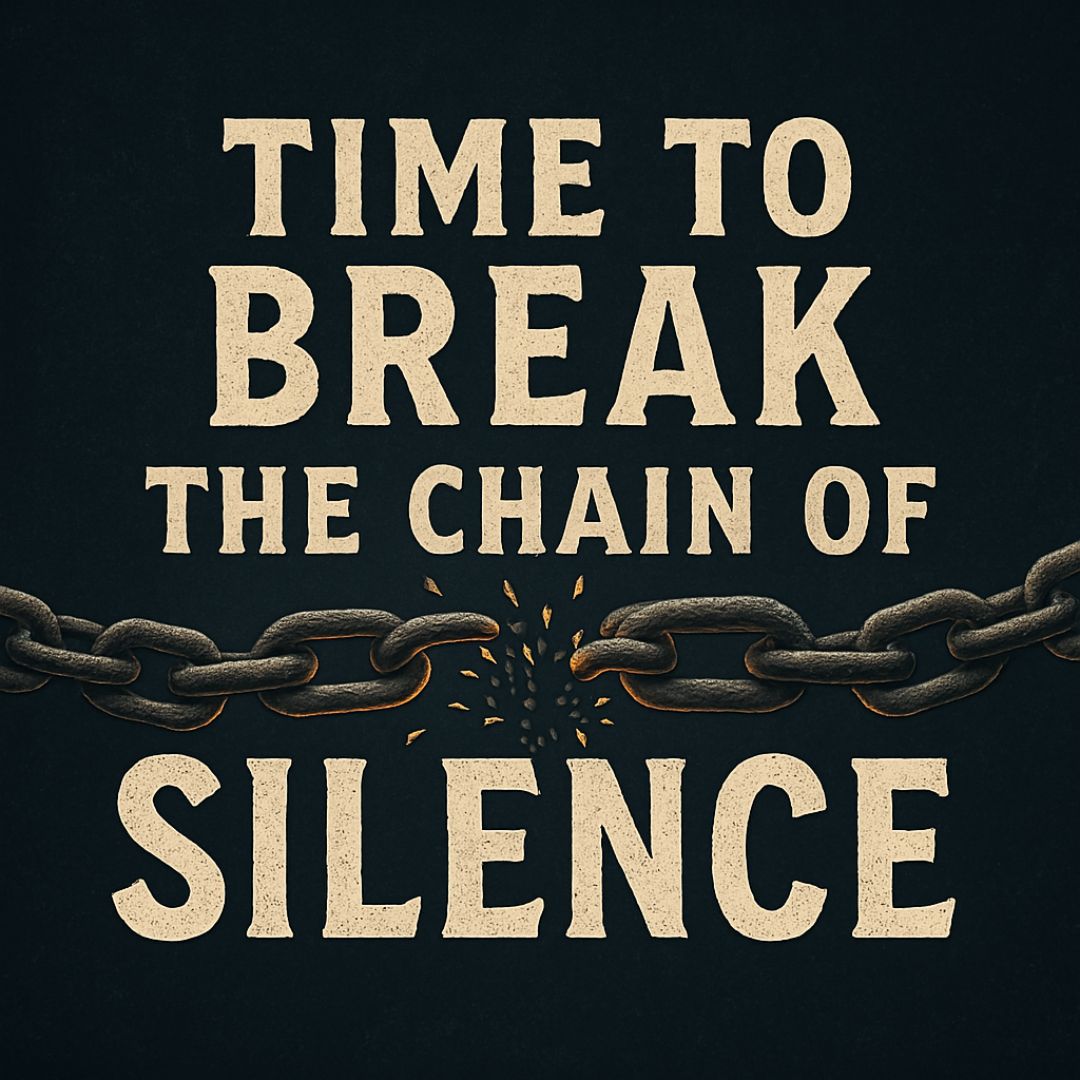Strategizing from 7 cities across the globe
Time to Break the Chain of Silence
Mental disorders can cause disturbances to one’s behaviors, ability to regulate emotions, and thinking patterns. Moreover, more than 80% of individuals struggling with mental health live in low- and middle-income countries. During the past few years, Lebanon, which is a Levant and LMIC, has been enduring different crises including political instability, economic collapse, and the COVID-19 pandemic that has overburdened its healthcare system. The World Bank has ranked Lebanon’s economic crisis among the top 3 most severe crises episodes globally since the mid-nineteenth century. In parallel to these crises, Lebanon suffered from the 2024 war that further exacerbated the burden on the fragile Lebanese healthcare system.
PSYCHOLOGYHEALTHCAREMENTAL HEALTHTRAUMAPSYCHIATRYSTIGMA
Hibatollah Khazem
3/27/20254 min read


Introduction
1 in every 8 individuals globally struggles with a mental disorder (World Health Organization, 2022). Many different types of mental disorders exist, but the most common are depression and anxiety. Mental disorders can cause disturbances to one’s behaviors, ability to regulate emotions, and thinking patterns (World Health Organization, 2022). Moreover, more than 80% of individuals struggling with mental health live in low- and middle-income countries (LMICs) (Cuijpers, 2023). During the past few years, Lebanon, which is a Levant and LMIC, has been enduring different crises including political instability, economic collapse, and the COVID-19 pandemic that has overburdened its healthcare system. The World Bank (2021) has ranked Lebanon’s economic crisis among the top 3 most severe crises episodes globally since the mid-nineteenth century. In parallel to these crises, Lebanon suffered from the 2024 war that further exacerbated the burden on the fragile Lebanese healthcare system. These diverse challenges not only led to materialistic losses, but also contributed to a rising issue—mental illness. When any nation faces major challenges, mental illnesses increase and prevent society from recovering from the crises at hand. Many patients struggling with their mental health not only have to endure its burden but also the stigma associated with it.
Mental Health Disorder Stigma
Recent research reports that, among a representative sample consisting of 1000 Lebanese individuals, an alarming rate of mental illnesses was detected. Among the participants, “47.8% screened positive for probable depression, 45.3% for probable anxiety, and 43.5% met the probable diagnosis for PTSD,” (Karam et al., 2025), signifying the need for action. In the Lebanese society, especially among those who have inflexible religious beliefs, seeking mental health help is unacceptable. Individuals avoid mental health services due to their fear of being cast out of society and hearing phrases like “you’re only making excuses”, “it seems you’re just tired because you don’t sleep well”, “it’s just an evil eye”, “you’re crazy”, “you are weird”, “why do you always seem sad”, and “we are all depressed not only you, stop exaggerating”. The taboo surrounding psychological treatment leaves many individuals suffering in silence.
Protective and Risk Factors of Mental Health Disorders
Different factors can protect from or increase vulnerability to mental illnesses. For example, having effective social and emotional skills, a sense of self-worth, proper physical health and activity, an effective parenting style, security and safety, and financial stability can act as protective measures against developing mental health disorders. However, factors such as the mental health disorder’s prevalence among family members, low educational level, chronic medical diseases, sleep issues, sexual abuse and violence, emotional or physical abuse, bullying, employment issues, enduring war, and economic instability can raise an individual’s susceptibility to develop mental health disorders.
The Need
There is a dire need to raise awareness about the necessity of seeking mental health services, particularly after the 2024 war. The Lebanese Ministry of Public Health and various NGOs in Lebanon (Lebanese Ministry of Public Health, 2024) are currently offering such services. In 2024, the Lebanese Ministry of Public Health (MoPH) launched a new national mental health strategy titled “National Mental Health Strategy for Lebanon (2024 - 2030) Reforming the Mental Health System” with the support of different international organizations including the World Health Organization. On the MoPH website, it is documented that the strategy is being successfully implemented, yet this does not align with what is really happening in the Lebanese society, where stigma toward mental illnesses is still prevalent. There is an increased need to find novel strategies that can help break the societal stigma toward mental illness and reach individuals who require mental health services yet avoid them due to their fear of judgement. Many people in Lebanon still harbor stigma toward psychological issues. This prevents those who are suffering from mental health issues from being aware of their condition and seeking mental health services, even if they are financially stable.
How to Know if I Need to Seek Mental Health Services?
Mental disorders have a wide range of distinct signs and symptoms that differ from one mental illness to another. However, below you will find a list of some common symptoms that usually last for 2 or more weeks that individuals experience when they are struggling with their mental health:
Constant thoughts of death
Constant thoughts of committing suicide
Thoughts of harming yourself
Feeling down
Feeling extremely happy and then suddenly sad
Having mood swings most of the time
Having trouble initiating or maintaining sleep
Losing interest in activities you usually enjoy
Appetite or weight changes that are not because of a certain medical condition
Difficulty to focus
Thinking of the worst-case scenario
Hearing sounds or voices that do not exist in reality
Having severe nightmares of a specific event
Seeing things or people that do not exist in reality
Having difficulty maintaining your job or educational performance or other responsibilities
Conclusion
It is time to break the chain of silence. Raise your voice and do not hesitate to address your mental health. The Lebanese Ministry of Public Health is offering very subsidized mental health services through different primary healthcare centers located in different regions. If you are encountering financial instability and struggling with your mental health, you can also seek professional help from Embrace’s hotline number 1564 for free, as it is a Lebanese NGO that provides different mental health services. Together, we can break free from the shackles of stigma and redefine societal expectations.
References
Abi Doumit, C., Haddad, C., Sacre, H., Salameh, P., Akel, M., Obeid, S., Akiki, M., Mattar, E., Hilal, N., Hallit, S., & Soufia, M. (2019). Knowledge, attitude and behaviors towards patients with mental illness: Results from a national Lebanese study. PloS One, 14(9), e0222172. https://doi.org/10.1371/journal.pone.0222172
Cuijpers, P. (2023). The dodo bird and the need for scalable interventions in global mental health-A commentary on the 25th anniversary of Wampold et al. (1997). Psychotherapy Research, 33(4), 524-526. https://doi.org/10.1080/10503307.2022.2138792
Karam, E. G., El-Jamal, M., Osman, R., Toukan, S., Mouawad, G. I., & Al Barathie, J. (2025). The aftermath of multiple trauma on a nation: Unraveling Lebanon's unique mental health struggle. Frontiers in Psychiatry, 15, 1444245. https://doi.org/10.3389/fpsyt.2024.1444245
Lebanese Ministry of Public Health (2024). The National Mental Health Programme https://www.moph.gov.lb/en/Pages/6/553/the-National-Mental-Health-Program
World Health Organization (2022, June 8). Mental disorders. https://www.who.int/news-room/fact-sheets/detail/mental-disorders
World Health Organization. (2021). Lebanon Economic Monitor, Spring 2021: Lebanon Sinking (to the Top 3). https://www.worldbank.org/en/country/lebanon/publication/lebanon-economic-monitor-spring-2021-lebanon-sinking-to-the-top-3#:~:text=This%20is%20a%20conclusion%20of%20the%20Spring%202021,Reinhart%20and%20Rogoff%20%282014%29%20over%20the%201857%E2%80%932013%20period.
